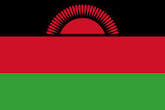
Panos commends Malawi President pronouncement on access to information reforms
Lusaka, 04 September 2020: Panos Institute Southern Africa welcomes the announcement by Malawi President, Dr Lazarus Chakwera expressing commitment to implement reforms to enhance free flow of information, including the operationalization of the Access to Information (ATI) Act within a month.
During his State of the Nation address in Parliament on 04 September 2020, President Chakwera announced that he would influence reforms under the Ministry of Information, including “operationalizing the Access to Information Act… in less than a month”. As an organisation that promotes access to information, we have repeatedly expressed concern at the delayed operationalization of the Access to Information Act, which has been gathering dust since its enactment in 2016. We reiterate that the delayed operationalization of the ATI law is an unnecessary setback to the full enjoyment of the right to information and freedom of expression.
Panos is alive to the fact that an operational law alone is not enough, it needs to be anchored on the necessary systems and structures. Therefore, we encourage the Ministry of Information and other entities that have a part to play to immediately put in place measures that would help to actualize the commitments made by the President. With this announcement by President Chakwera, we expect to see immediate and practical steps taken by the Ministry of Information and other actors to ensure that the ATI law would be operational by the beginning of the second week of October 2020, going by the President’s one month deadline.
Panos encourages the media and civil society in Malawi to continue to play the role of watchdog by exposing any gaps, influencing attitude change as well as responsive and proactive actions in the implementation of these reforms. We also urge media practitioners not to abuse the opportunities presented by the operationalization of this law but instead use it to deepen the practice of investigative journalism, increasing citizens’ access to and use of information held by public entities.
President Chakwera further announced “the establishment of Parliament Television and Radio to improve public access to information about House activities” as part of his information reforms. As an organisation, we attach great importance to Parliament as one of the three arms of the state, especially considering that its Members are directly elected by citizens. It is important to have a platform where citizens could obtain reliable information on the proceedings of Parliament, in addition to other engagement with their elected representatives.
Other notable reforms that will enhance the free flow of information and increase opportunities for engagement between citizens and their decision makers include President Chakwera’s expression of commitment to increase internet access, and enable more Malawians to “reap the digital dividends”. There is no doubt that while the proliferation of internet based digital platforms presents more opportunities for citizens, challenges such as low digital literacy, limited access and lack of solid policy backing have marginalized many Malawians from using internet based tools and platforms.
On measures to reform the broadcasting sector, President Chakweara said he “will reform MACRA (the Malawi Communications Regulatory Authority) into a people-centred and professional regulator … break the spell of political servility that binds the Malawi Broadcasting Corporation (MBC)”. Being the leading actors in the broadcasting sector, we are confident that the reform of the MBC and MACRA presents an opportunity for truly public service broadcasting. It is our hope that the President is not merely playing to the gallery to manage the very high expectations that many stakeholders, including ourselves, have of his administration.
Issued by:
Vusumuzi Sifile
Executive Director, Panos Institute Southern Africa
Email: vusa@panos.org.zm